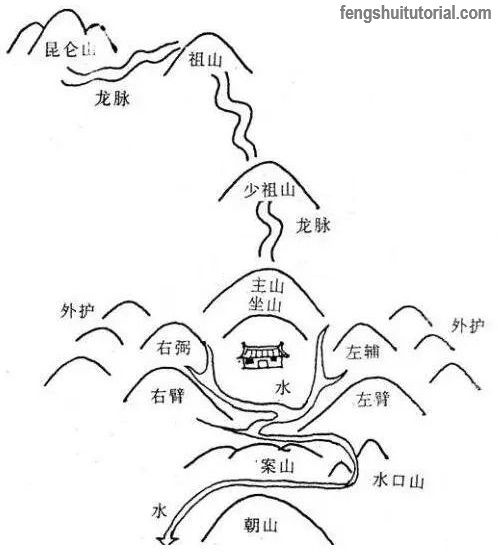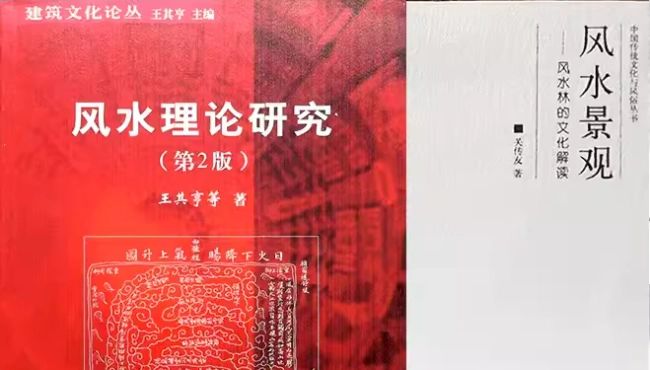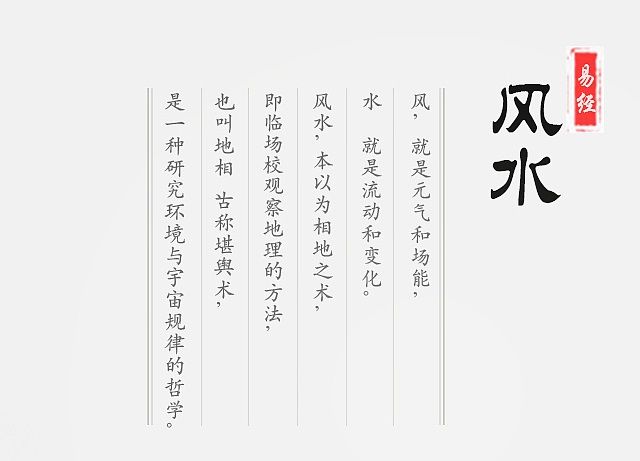What is Feng Shui?
Go around the internet and look for Feng shui, we always get something like "Feng" means wind, "Shui" means water, and it's the art of arranging buildings, objects...etc. It's general, one-sided, and narrowly defines Feng Shui.
When it comes to "Feng Shui" we feel it is extremely mysterious. We always think of the feng shui master walking around with a compass and muttering words we don't understand. So what exactly does Feng Shui do and is it trustworthy?
Historical development of Feng shui
In the history of Feng Shui culture for thousands of years, Feng Shui culture has not only "taken root and flourished" from the beginning but also played a corresponding positive role in political, economic, cultural, and social life. of the country throughout a long historical period. Feng shui runs through every process of traditional Chinese construction activities. From site selection planning, construction units, garden sketches, indoor and outdoor decoration designs to construction, almost everywhere. It has an important position that other cultures cannot replace.

Before learning the concept of feng shui, we hope you can first learn about the historical development of feng shui, from the beginning to the present, to see the necessity and continuity of feng shui in Chinese history:
History of Feng ShuiOther definitions
The definition in the August 1980 edition of “Cihai”辞海is: “Feng shui, also known as Kanyu堪舆, is a superstition in ancient China. It is believed that wind direction and water flow around residential areas or cemeteries can bring bad luck to people. the person or family of the person being buried. In addition, it also mentions the method of building houses and mausoleums.
In the explanation of "Cihai", Feng Shui is labeled as "superstition", which clearly bears the political imprint of its editor's era. Remember the great influence of China's Cultural Revolution (1966–1976). This was a time when traditional religion and cosmology were suppressed like never before, in the name of ideological purity. This is also considered the darkest period of Chinese culture.The book “Chinese Science and Civilization”中国的科学与文明points out:中国风水是:使生者与死者之所处与宇宙气息中的地气取得和合的艺术。 “Feng Shui is the art of harmonizing life and death with the earth's atmosphere in the universe.”
In the book "Research on Feng Shui - Korean Culture and Nature"韩国风水研究-一一文化与自然by Yin Hongji尹弘基pointed out: "Feng shui is a system of landscape evaluation to Find good locations for architectural works. It is the art of selecting and arranging geographical locations in ancient China."
"Research on Feng Shui Theory"风水理论研究edited by Wang Qiheng王其亨pointed out: "Feng shui is actually a comprehensive and highly systematic, integrated ancient architectural planning and design. integrating geology, ecology, landscape, architecture, ethics, psychology, and aesthetics. Theory, along with architecture and horticulture form the three pillars of ancient Chinese architectural theory."

In the book "Harmonious House 1 - Yixuankong Residential Environment"和谐家居1-一玄空住宅环境学by Lian Lihua练力华affirms: "Feng shui refers to people choosing and using and adapted to the natural environment, using the necessary form as a carrier and based on the principle of harmonious unity between heaven and earth. and human aura to achieve the goal of prosperity. A type of knowledge and technique for finding good luck and avoiding bad luck.”
Master Xie Xinhong谢欣宏explains in the book Taoist Feng Shui道家风水: Feng shui is a technology that coordinates the energy created by objects, space, and time to form an energy field that affects the body. human bodies, space, and objects.
Conclusion
Feng shui is a science that studies the laws of the environment and the universe. The ancients believed that宇宙大人身,人身小宇宙- "the universe is a large object, and the human body is a small universe", the universe and humans are one, and they promote an important concept of天人合一- "unity between nature and humans". Therefore, not only does the environment have an impact on people, but people also have an impact on the environment. In this world, people must have a place to live. When they live, they have a positive house and after they die, they have a negative house. Only when the place you live is in harmony with the environment you can be healthy.

The conflict between feng shui and science, for me, is natural. Because not only feng shui, the conflict between science and religion has existed for a long time since Darwin's theory of evolution (1859). Feng Shui seems mysterious but it has a certain scientific nature, it is a comprehensive science, intertwining many branches of science. It covers a wide range of scientific disciplines such as physics, geology, meteorology, urban environment, and ecology in modern science. No matter how profound its principles are, no matter how complex its methods of operation, it is generally based on one principle: harmony between humans and the environment. Ancient people often said:宅以形势为身体,以泉水为血脉,以土地为皮肉,以草木为毛发,以舍屋为衣服,以门户为冠带。若是如斯,是事俨雅,乃为 上吉。- "The house uses the shape as the body, the spring water as the blood, the earth as the skin and flesh, the vegetation as the hair, the house as the clothes, and the door as the crown. If this is the case, it is elegant and it is auspicious."